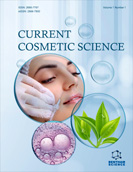Abstract
Melasma, a prevalent hyperpigmentation skin disorder, poses significant challenges in dermatology clinics. Despite its global impact, conventional treatment options often entail potential side effects and limitations, necessitating the search for alternative therapeutic strategies.
This narrative review aims to advance the understanding of melasma from the perspective of Unani medicine, an ancient healing system recognized by the World Health Organization. It seeks to explore potential therapeutic avenues within the Unani medical paradigm by synergizing ancient wisdom with contemporary perspectives.
The review delves into the Unani scholars' understanding of melasma, known as Kalaf, drawing from the wisdom of renowned scholars. Their insights into the multifactorial etiology of melasma, including pathogenesis, treatment approach, and recommended prescriptions, are discussed.
The descriptions of melasma by Unani scholars have documented the etiopathogenesis, risk factors, and management in detail and emphasize personalized interventions based on the pathological concepts of Unani medicine. Moreover, some of these interventions were also investigated in recent clinical trials and found to have comparable efficacy with standard treatment options.
This review fosters the understanding of the pathogenesis of melasma according to Unani concepts and a holistic approach to the management of melasma, drawing from the timeless legacy of the Unani system of medicine. This review may serve as a reference point for future research, enabling the planning of subsequent studies on this disease with a comprehensive understanding of the previous investigations conducted in this field.









